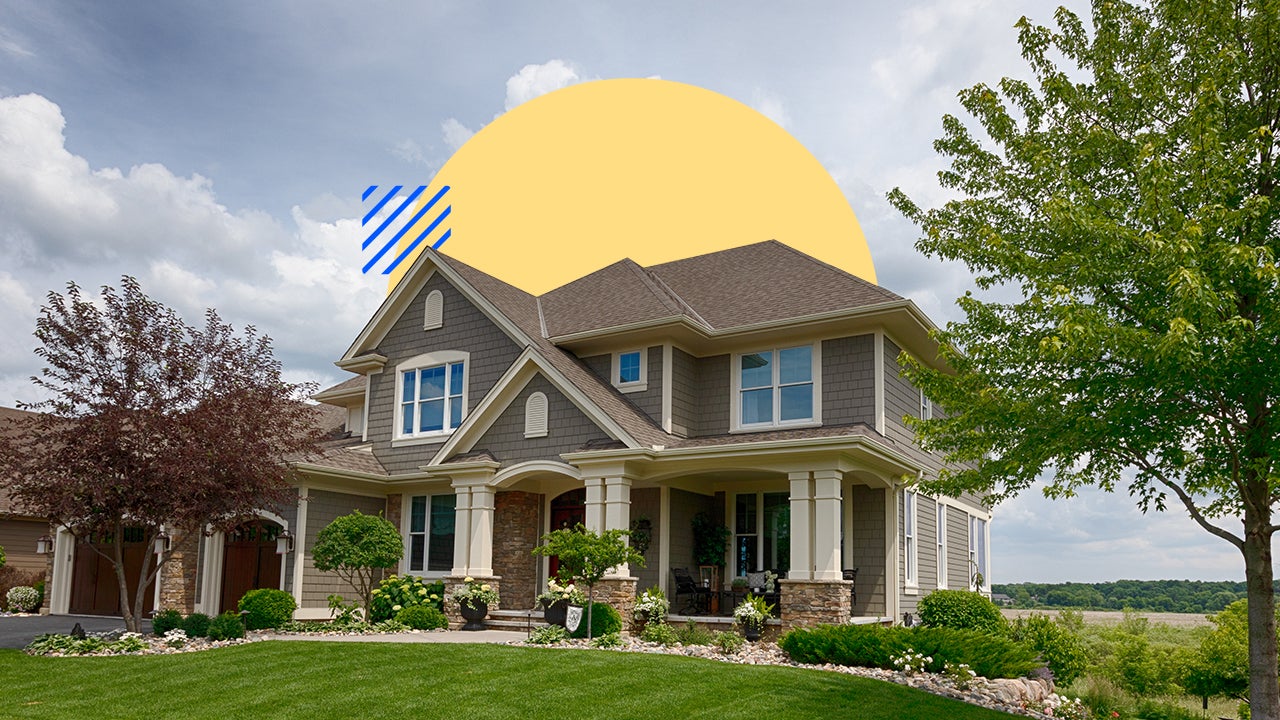How much house can I afford with a $180K salary?

Homeownership is likely well within your reach if you earn an annual salary of $180,000. The median household income nationwide is $74,580, per U.S. Census data, meaning your yearly income is more than double what most earn. That puts you in a much more favorable position to get approved for a mortgage.
That doesn’t mean it will be easy to buy a home that meets your needs in your price range, though. A lot depends on where you’re looking to live and what the rest of your financial picture looks like. Here’s how to figure out how much house you can afford on a $180K salary, without overreaching.
The 28/36 rule
Financial experts often use this rule — which is really just a guideline, not a strict rule — to determine how much home you can afford. It holds that, ideally, your monthly housing costs should not exceed 28 percent of your gross monthly income. And your monthly debt payments overall, including housing costs as well as things like credit card bills and car payments, should be no more than 36 percent of your gross monthly income.
The 28/36 rule can give you a good ballpark idea of how much you can comfortably afford to spend on a home, while still having enough leftover for your other debts. Here’s how it applies to your $180K salary:
- $180,000 / 12 = $15,000 (gross monthly income)
- $15,000 x 0.28 = $4,200 (your maximum monthly housing budget)
- $15,000 x 0.36 = $5,400 (your maximum monthly budget for all debt payments)
How much house can you afford?
The calculations above give you an idea of how much you should spend on monthly housing costs. But how does that relate to a home’s sale price?
Bankrate’s mortgage calculator can help you run the numbers. For example, a $700,000 home — assuming a 30-year fixed-rate mortgage with a 7 percent interest rate and 20 percent down payment — would require a monthly principal and interest payment of about $3,725. That gives you about $475 of wiggle room to cover homeowner’s insurance premiums and property taxes, both of which can vary widely depending your location, before you hit your maximum of $4,200.
So, hypothetically, your $180K salary can afford you a $700K home (as long as your other debts don’t take you past the 36 percent mark). Be mindful, though, that your down payment, and the closing costs associated with buying a home, must be paid upfront. So you’ll need to spend a significant amount outright before the continuing monthly payments begin.
Other factors lenders consider
Of course, lenders look at many other factors beyond just your annual salary when you apply for a mortgage. Here are some other things to consider:
- Credit score: Borrowers with high credit scores will generally qualify for the most attractive mortgage rates. With a lower score, you can expect steeper costs, so it might be smart to take some time to raise your credit score before you start house-hunting.
- DTI ratio: Your debt-to-income (DTI) ratio measures how much of your monthly gross income is used to cover debt payments. This is the 36 percent in the 28/36 rule, but some lenders may offer a bit more flexibility.
- Down payment amount: The calculations above assume a down payment of 20 percent, but that amount is not necessarily required — in fact, many mortgage products require far less. Keep in mind, though, that a lower down payment means you’ll need a bigger loan, and you’ll likely have to pay private mortgage insurance if you put down less than 20 percent.
- Geographic location: Factor in the cost of living in your area as well — a more expensive home might be more affordable when your other expenses are cheaper, and vice versa. And in some areas, like New York City or San Francisco, the average home might be too pricey for even your high salary.
Home financing options
Before you begin your home search, explore home financing options to decide which works for your situation. There are many types of home loans that can help you make your purchase, each with different down payment and credit score requirements. With your high salary, a conventional loan is likely to be a good choice. Consider speaking with a loan officer or mortgage broker to discuss your options before moving forward.
First-time homebuyer programs
Are you new to homebuying? You could be eligible for a federal, state or local program that can help lower your out-of-pocket costs with down payment or closing cost assistance. However, many such programs are aimed at low-income or underserved borrowers, in which case your high salary will likely make you ineligible. It’s worth checking into, though.
Get preapproved for a mortgage
Even though you’ve already done the math to gauge your affordability, it’s important to get preapproved for a mortgage. This tells you exactly how much a lender would be willing to loan you, which helps you keep a tight focus on your price range. It also makes you more appealing to sellers because it reassures them that you are financially qualified to buy. When you’re ready to apply for your official loan, you’re not obligated to stick with the same lender that preapproved you.
Next steps
If you’re ready to take the plunge and find out how much house you can afford on your $180K salary in your area, consult a local real estate agent. Agents are licensed pros who know their markets well and can help you find a place that meets your unique needs and budget. Ask your friends and family for recommendations, check out yard signs in areas you like and interview several candidates to find an agent who you feel good about.
Why we ask for feedback Your feedback helps us improve our content and services. It takes less than a minute to complete.
Your responses are anonymous and will only be used for improving our website.






